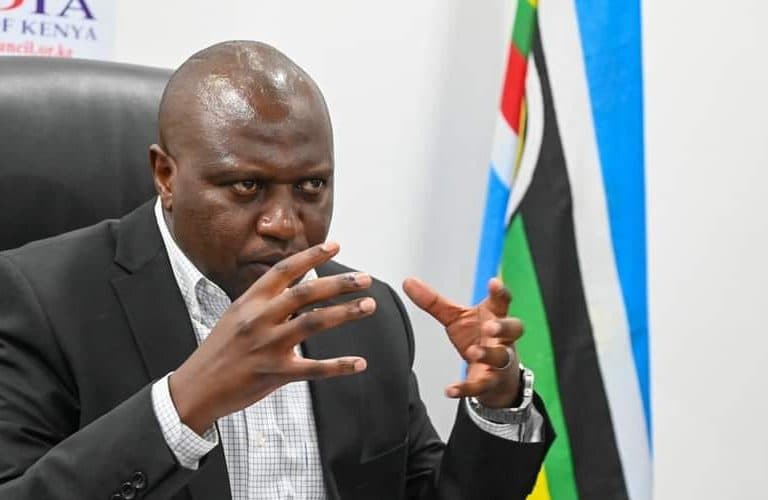We're loading the full news article for you. This includes the article content, images, author information, and related articles.
The media regulator has issued a stern advisory against illegal "voodoo" opinion polls, reminding journalists of their legal and ethical duties just days before Kenyans in multiple constituencies and wards head to the ballot on Thursday, November 27.

NAIROBI, KENYA – With just three days remaining until crucial by-elections in over two dozen electoral areas, the Media Council of Kenya (MCK) has issued a sharp warning to journalists, media houses, and online content creators against conducting or publishing unauthorised and unscientific opinion polls. The advisory, released on Sunday, November 23, 2025, underscores the regulator's commitment to ensuring professional and ethical conduct during the sensitive electoral period.
In a strongly worded statement, the council identified a rising trend of what it termed “voodoo polls”—instant polls conducted via social media platforms like X (formerly Twitter), Facebook, and TikTok, as well as through call-ins and live comments during broadcasts. The MCK cautioned that such practices are not only unprofessional but also illegal, violating the Publication of Electoral Opinion Polls Act of 2012. The Act expressly forbids the publication of any electoral opinion poll results on the day of an election or in the five days immediately preceding it.
“The Media Council of Kenya (MCK) is reminding media outlets, journalists, and online platforms that conducting or publishing unscientific and unauthorised election-related opinion polls is illegal and must stop immediately,” the statement read. The council clarified that casual public interviews, such as pre-recorded vox-pops, do not meet the threshold for scientific surveys and should not be presented as such.
The by-elections, scheduled by the Independent Electoral and Boundaries Commission (IEBC) for Thursday, November 27, 2025, will fill vacancies in 27 electoral areas. These include the Baringo County Senate seat, and National Assembly seats in Banissa, Kasipul, Magarini, Malava, Mbeere North, and Ugunja constituencies. Additionally, voters in 17 wards across various counties, including Nairobi's Kariobangi North, will elect new Members of County Assembly (MCAs). The campaign period for these elections officially concludes on Monday, November 24, 2025.
The MCK's warning is part of a broader effort to ensure the media plays a constructive role in Kenya's democratic process. Earlier in November, the council, in collaboration with the IEBC, held sensitisation forums for journalists to promote responsible and ethical reporting. Speaking at a virtual forum, MCK Director of Media Training and Development, Victor Bwire, emphasised the need for journalists to be equipped with the skills for impartial coverage. “This engagement is not just about covering the by-elections, it is about improving our long-term capacity to report fairly, ethically and responsibly,” Bwire stated on November 12, 2025.
The council's advisory is grounded in the Media Council Act, 2013, and the Code of Conduct for the Practice of Journalism in Kenya, which mandates that all reporting on matters of public interest be fair, accurate, and unbiased. The guidelines for election coverage specifically require the media to provide citizens with sufficient and reliable information to make informed choices, free from intimidation or coercion. This includes avoiding hate speech and conflict-sensitive reporting.
MCK Chief Executive Officer David Omwoyo has consistently highlighted the media's critical role in upholding accountability and constitutional principles. The council has urged media practitioners to adhere strictly to their own in-house editorial policies and the established legal frameworks to avoid misleading the public. “Journalists and media organisations are therefore urged to desist from any practices that would place them in breach of the law, professional ethical standards, or their own in-house editorial policies, all of which demand responsible and lawful journalistic conduct,” the MCK stressed.
The focus on online content creators and social media platforms reflects the evolving media landscape, which the MCK has sought to address through recent updates to its code of conduct. The regulator has reaffirmed its mandate to monitor media performance and ensure adherence to ethical standards across all platforms, safeguarding the integrity of the electoral process as Kenyans prepare to head to the polls.
Keep the conversation in one place—threads here stay linked to the story and in the forums.
Sign in to start a discussion
Start a conversation about this story and keep it linked here.
Other hot threads
E-sports and Gaming Community in Kenya
Active 9 months ago
The Role of Technology in Modern Agriculture (AgriTech)
Active 9 months ago
Popular Recreational Activities Across Counties
Active 9 months ago
Investing in Youth Sports Development Programs
Active 9 months ago